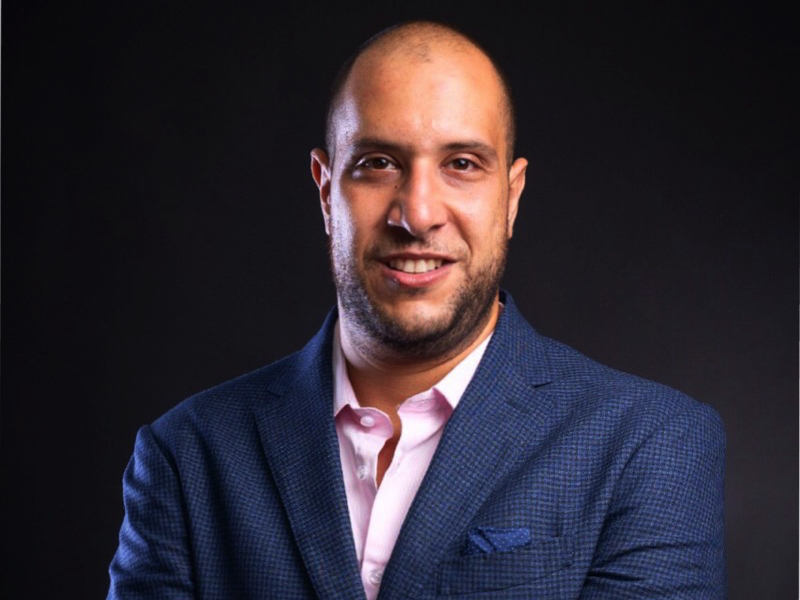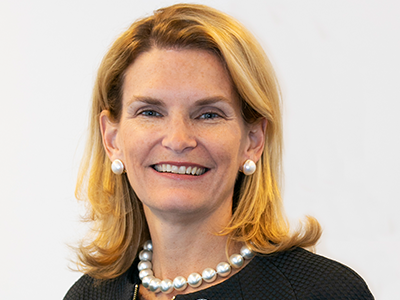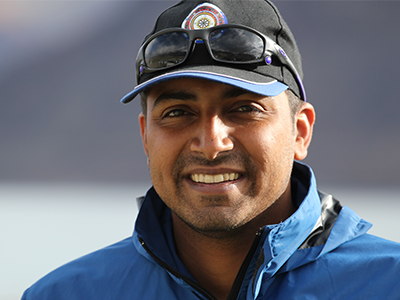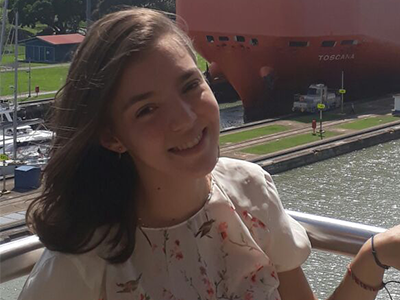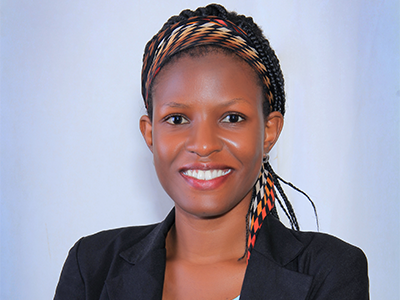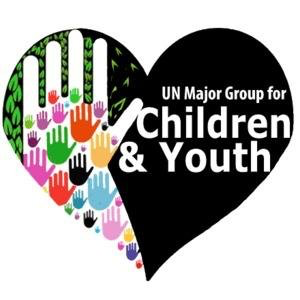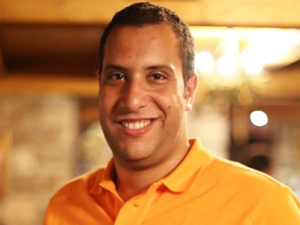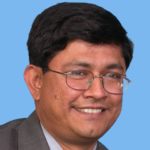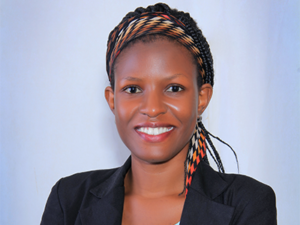2020 | Global Sustainable Technology & Innovation Conference (G-STIC)
2020 October 26 – 29
Location: Hybrid – Brussels, Belgium/Virtual

The Global Sustainable Technology & Innovation Conference (G-STIC) returns to Brussels and once again IEEE is involved!
IEEE Entrepreneurship, in partnership with UN Major Group for Children and Youth, is organizing the 4th annual video pitch competition at this year’s G-STIC 2020 event.
This competition is open to organizations and companies with original and innovative solutions that hold great potential for achieving the UN Sustainable Development Goals (SDGs), especially in light of the ‘decade of action’ to accelerate progress between 2020-2030.
Students, researchers, companies, and individuals will compete in three different categories: ideation, founded start-ups, and mature companies.
Each category supports IEEE’s mission of “Technology for the Benefit of Humanity” and the UN MGCY’s focus on people-and-planet centered innovation, giving participants a chance to contribute to global efforts towards the SDGs.
If selected, the winners in each category will be invited to attend G-STIC 2020 in Brussels from 26 – 29 October 2020 to present.
The judging panel will consist of the IEEE 2019 G-STIC video pitch competition winners
The videos will be judged based on our 5 IEEE Entrepreneurship criteria:
- Innovation
- Market
- Product
- Diverse Team
- Traction.
Questions? Contact Us.
Entrepreneurial Session on Sustainability | Thoughts, and Actions
This session is currently scheduled for 28 October from 13:30 to 15:00, but may be subject to change.
The current view from Dietrich Van der Weken, General Manager of G-STIC, is that it will be a face-to-face meeting in Brussels, barring any second wave of COVID-19. The venue can safely seat 1,000 people with the correct social distancing measures in place. Contingency plans for a hybrid approach are being worked on and we will post updates regarding the conference status as we approach October.
IEEE is a thought leader in the UN Sustainable Development Goals with its mission of “Technology for the Benefit of Humanity”. But IEEE doesn’t just think and talk about the SDGs, we also act on them.
This session showcases some of IEEE’s impactful SDG projects by its global members and partners. Some of the UN SDGs represented in these talks are Quality Education, Gender Equality, Clean Energy, Economic Growth, Good Health, Clean Water, and Climate Action.
Paras Loomba, Founder of Global Himalayan Expedition
Paras is the founder of the Global Himalayan Expedition (GHE), a social impact enterprise, that provides clean energy and livelihood access to the remote Himalayan communities.
Over the last 8 years, Paras has led several leadership expeditions to Himalayas (India) to set up solar microgrids for the remote off-grid communities that are thriving for centuries without access to any kind of basic electricity. His initiative GHE has been instrumental in electrifying 110 remote Himalayan villages and impacting over 55000 lives. In the process, GHE has also created livelihood generation for more than 140 village-level women entrepreneurs that run traveler homestays in these solar electrified villages to promote community-based tourism.
An engineer by profession, Paras merges technology and passion with an approach to entrepreneurial models in these high-altitude areas advocating the use of sustainable tourism solutions that would eventually provide stimulus to the local economy, reducing local emigration, and preserving age-old cultural Himalayan heritage.
“This topic will revolve around – ” How can you achieve holistic development through energy access” We have been focusing on using energy access as a tool, to further sustainable development in communities through creating interventions in education and livelihood. This brings an overall impact in the communities and in the process to achieve various SDGs”
Dr. Crystal Mogensen, CEO of The Maa Trust
We will touch on the following UN- SDGs goals:
No poverty – The Maa Trust works to reduce poverty through livelihood diversification and income generation, women’s empowerment, and the provision of basic services. Good health and wellbeing – Integrated Community Healthcare Project work to provide quality healthcare to marginalized rural communities. Quality education – The focus of our children’s program is making sure that all children attend school, and then once they are in school, that they receive a quality education. Gender equality – We are working to prevent all forms of gender-based violence and discrimination, including FGM, child marriage, and child pregnancy. Clean water and sanitation – The Maa Trust has moved away from troublesome boreholes and now focuses on large scale rainwater harvesting and natural spring rehabilitation. Affordable and clean energy – The Maa Trust is piloting a new modular solar system called the SunBlazer at its new HQ and looks forward to rolling this out across the area, including charging electric vehicles. Decent work and economic growth – The Maa Trust coordinated three social enterprises, two for women (Maa Beadwork and Maa Honey) and one for youth (Maa Bricks). Climate action/life on land – The trust works together with wildlife conservancies and the mission of the trust is to ensure that communities benefit from the protection of wildlife and habitat through evidence-based community development.
“The Maa trust is a sustainable development implementer. Maa Trust is a community-based non-profit in the Maasai Mara, Kenya. The Maa Trust increases benefits local Maasai communities receive from safari tourism, focusing on the traditionally disadvantaged. The trust works to empower women, youth, and children through three thematic areas: Education and Skills, Water and Health, and Alternative Livelihoods. The Maa Trust’s programs are research-based, built upon Dr. Mogensen’s (nee Courtney) Ph.D. examining the relationship between conservancies and development in the Maasai Mara.”
Doreen Bogdan-Martin, Director, Telecommunication Development Bureau
This talk will highlight some of the UN- ITU’s work with the Women-in-Tech Challenge and the Digital-Change-Maker Challenge in various parts of the world. Some of the SDG’s highlighted are Zero Hunger, Decent Work, and Economic Growth, Reduced Inequalities.
Be inspired by the stories of our 2019 video pitch recipients of the IEEE/UN-MGCY Video Pitch Competition include:
Greenovation: Among the video pitches on products originating from workshops and competitions that support any of the selected Sustainable Development Goals, Greenovation (Bhutan) was selected as the winner.
Aevice Health: Among the video pitches by companies launching a market-ready product that supports any of the selected Sustainable Development Goals, Aevice Health (Singapore) was selected as the winner.
Cygni Energy: Among the video pitches by growth companies generating substantial sales of products that support any of the selected Sustainable Development Goals, Cygni Energy (India) was selected as the winner.
As it’s logo indicates, G-STIC is an event with strong themes connected to the UN Sustainable Development Goals (SDGs) — but with a unique approach that differs similarly to the way in which the G-STIC logo includes the SDG colors and bars but has broken away from the formality of the traditional SDG logo!
With G-STIC 2017, G-STIC 2018, & G-STIC 2019 has raised awareness on the need for technological transitions to achieve the world community is making strides in recognizing the potential of integrated technology solutions to help make the SDGs a reality. 2020 and future G-STIC editions will focus on identifying clusters of market-ready technological solutions that can make a major contribution to achieving the SDGs, and discussing the critical levers of change that are needed to deploy these solutions at scale.
G-STIC 2020 will lay the foundations of a comprehensive approach to identifying and discussing integrated technological solutions that can significantly impact the achievements of the SDGs. It will also test this approach on a number of concrete integrated technological solutions. G-STIC 2020 is hosted jointly by VITO (the prime research and technology organization on cleantech and sustainable development in Belgium) and its international partners’ ACTS (African Centre for Technology Studies), FIOCRUZ (Fundação Oswaldo Cruz), GIEC (Guangzhou Institute of Energy Conversion, Chinese Academy of Sciences), IITD (Indian Institute of Technology Delhi), NACETEM (National Centre for Technology Management) and TERI (The Energy and Resources Institute). Read More.
![]()



